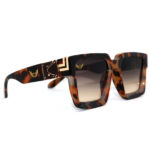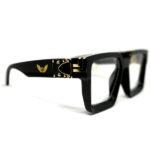Blue Light Vs. Anti-Reflective Lenses: What’s the Difference?
Choosing the proper glasses might appear to be a difficult task. There’s a lot more to picking stylish frames; you have to select the right glasses for you and selecting the correct coatings for your lifestyle. One often asked the question is, “What is the difference between anti-glare and Anti-reflective lenses? You’re not alone if you’re confused by the similarity between the anti-reflective coating and blue light coating. We receive this question a lot; therefore, we’d want to clarify it up and better assist you to know which coating is best for you.
People with vision problems are the most likely to use glasses. However, most people now spend more than 10 hours a day in front of a laptop. The ultraviolet radiation generated by a computer screen and cell phones are very harmful to the eyes. Scientists have developed a solution to these problems. The new blue cut and anti-glare glasses solve these concerns. If you want to understand more about these glasses, below are some of the differences between them.
What are Blue Light Glasses?
Blue light is also known as High Energy Visible light because it is located towards the top of the visible light spectrum. Blue light is naturally emitted by the sun, and like UV light, a modest bit of it is beneficial to human health, while too much can be hazardous. Blue light issues originate from the fact that spending more time in front of digital gadgets such as laptops, mobile phones, and television set exposes us to far more HEV than we require. Blue light blocking lenses filter out up to 90% of the HEV generated by digital screens, assisting in the relief of eye strain and sleep problems, which are common complaints among computer users.
Blue-cut lenses are designed to absorb anything from 10% to over 90% of blue light. This lens is designed to let some blue light flow through while preventing color distortion. Anti-blue light glasses help relieve symptoms of eye strain almost instantly, especially while working at night. Wearing blue light glasses when working on electronic devices may assist in restoring your circadian rhythm and reduce your risk of macular degeneration over time.
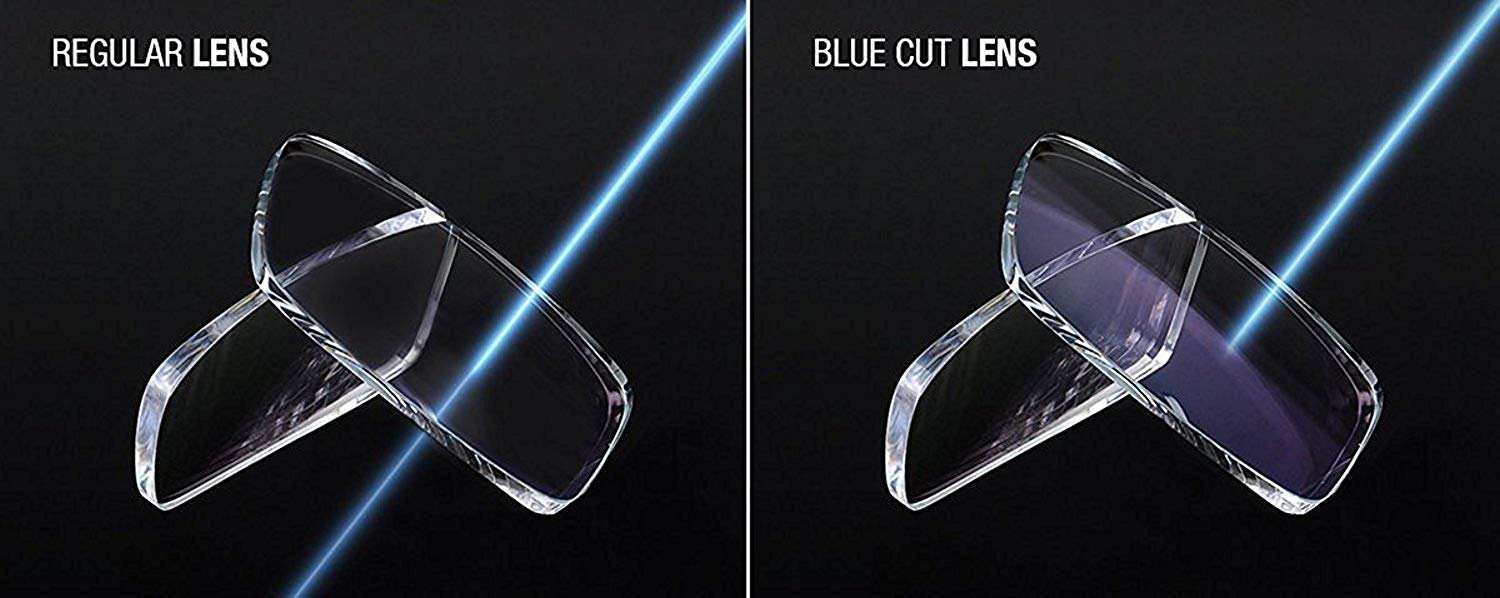
Blue Light Glasses
-
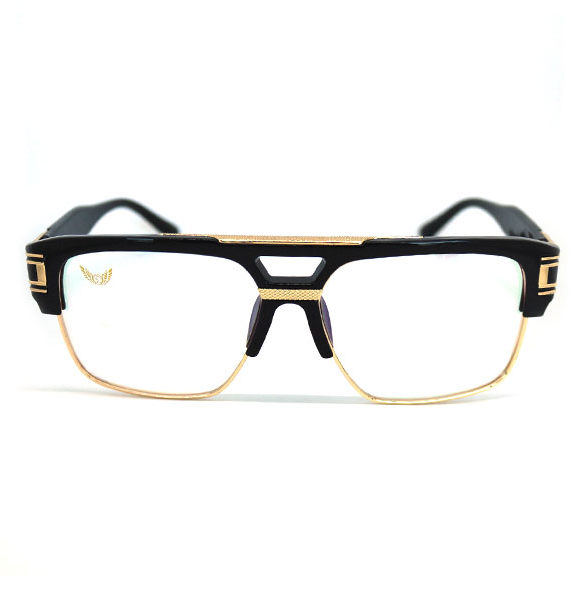 Hoover | Blue Light Glasses$99.99
Hoover | Blue Light Glasses$99.99 -
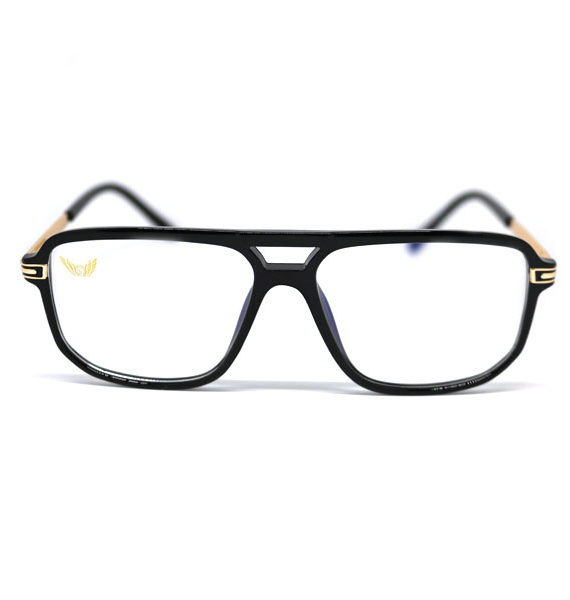 CEO | Blue Light Glasses$99.99
CEO | Blue Light Glasses$99.99 -
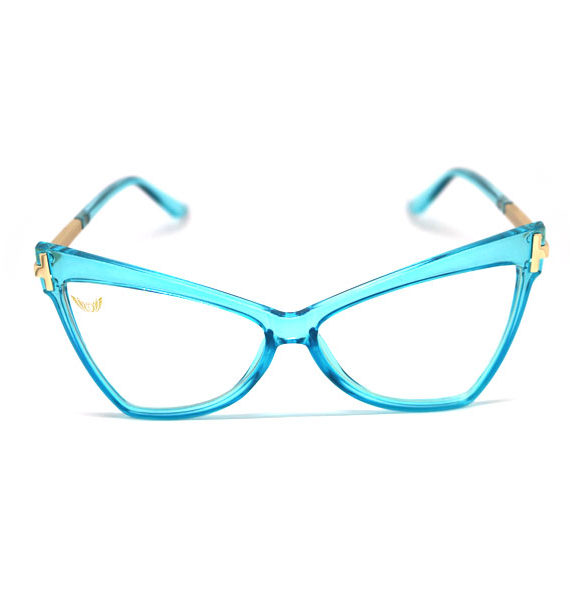 Divine | Blue Light Glasses$99.99
Divine | Blue Light Glasses$99.99 -
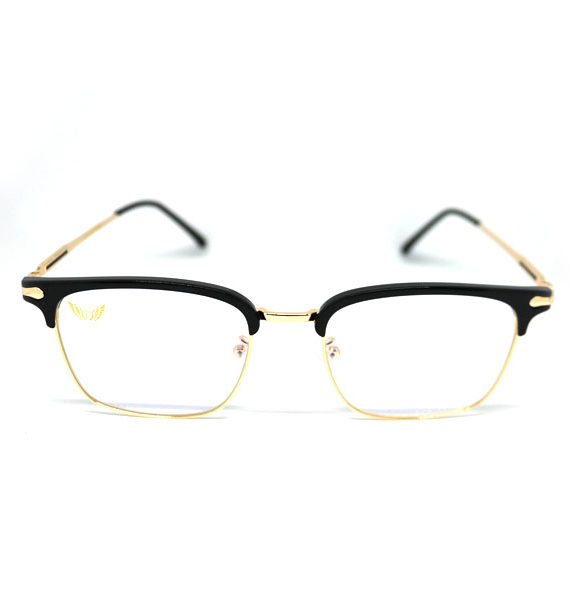 Ian Michael | Blue Light Glasses$99.99
Ian Michael | Blue Light Glasses$99.99 -
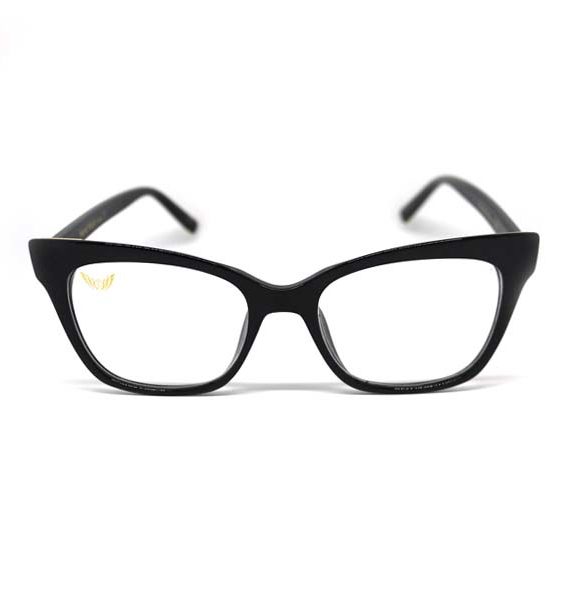 Study | Blue Light Glasses$89.99
Study | Blue Light Glasses$89.99 -
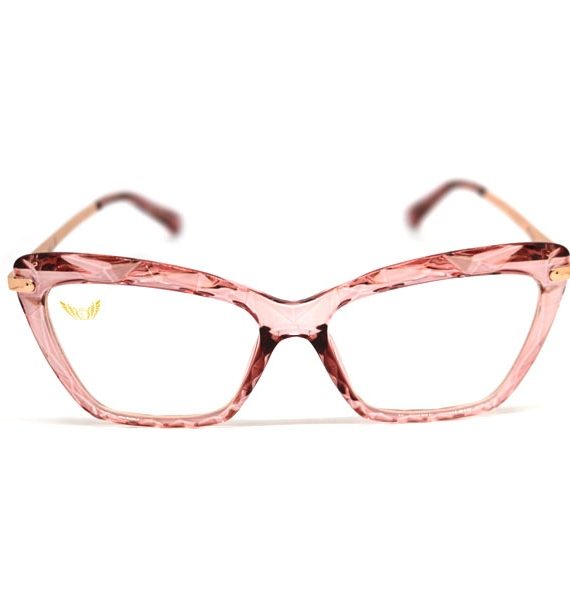 Chelle | Blue Light Eyewear$89.99
Chelle | Blue Light Eyewear$89.99
What are Anti-Reflective Lenses?
A layer of anti-glare coating, also known as anti-reflective coating or AR coating, is applied to the surface of your eyeglass lenses to allow light to pass through. This improves your vision by decreasing the amount of glare reflected off your lenses. Glare is described as an excessive amount of luminance caused by either direct or reflected light. LED-lit phones, tablets, and computer screens can also create glare.
The AR coating improves visual clarity and comfort. UV rays are additionally protected by the anti-reflective coat. Glare may be a significant issue in many outdoor activities. Anti-reflective glasses or sunglasses can help minimize this light and provide you with a clean field of view. Glare may be extremely distracting when performing deep focus jobs or working on a computer screen. You are straining your eyes whenever you have to squint to see something. Eliminating glare when performing these chores will assist in reducing strain on your eyes. Phones, computers, tablets, and televisions all produce hazardous blue light. Some anti-glare coatings can help you minimize your blue light exposure, enhance your sleep, and minimize eye strain.
Lens coatings meant to decrease glare or reflection allow the whole spectrum of visible light, including blue light, to pass through. Lenses with this sort of coating are intended mainly to enhance visual clarity that would otherwise be compromised by glare, which is most beneficial for decreasing eye strain and improving eyesight. Anti-reflective lens coatings on glasses may be appropriate for a variety of activities, including screen use and night driving.
Many anti-glare lens coatings are also treated with a hydrophobic surface treatment, which makes them water-resistant. They are also easy to clean as a result of this. Fine scratches, on the other hand, are more noticeable on anti-glare lenses due to their full transparency. When cleaning your anti-glare lenses, only use materials recommended by your optician. Always wet or damp your lenses before cleaning them; using a dry cloth on dry lenses may cause dust or other particles to damage your lens.
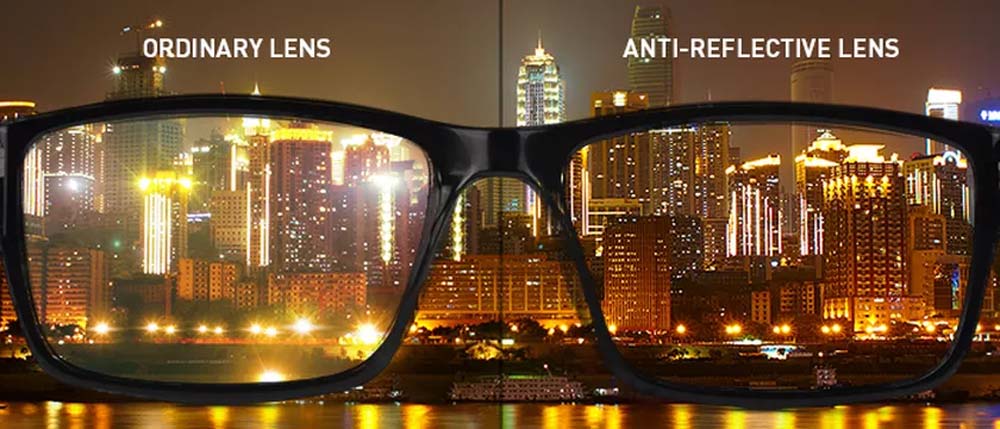
The Difference Between Blue Light and Anti-Reflective Lenses
When it comes to protecting your eyes and enhancing visual clarity, it’s essential to differentiate between blue light glasses and anti-reflective lenses. Each serves a unique purpose and offers specific benefits. Let’s explore the key differences between these two types of eyewear:
- Blue Light Glasses: These glasses are specially designed to filter out the blue light emitted by LED screens and digital devices. The lenses of blue light glasses are crafted to block a significant portion of the blue light spectrum, which can help reduce eye strain and minimize the potential disruption to your sleep cycle caused by prolonged exposure to blue light.
- Anti-Glare Lenses: On the other hand, anti-glare lenses are designed with a special anti-reflective coating. This coating helps reduce glare caused by reflections from various light sources, including headlights, streetlights, and indoor lighting. Anti-glare lenses enhance visual clarity by minimizing distractions caused by unwanted reflections on the lens surface.
- Filtering Properties: Blue light glasses primarily focus on blocking blue light wavelengths, preventing them from reaching your eyes. This can be particularly beneficial for individuals who spend significant time in front of LED screens or electronic devices. Anti-glare lenses, however, primarily target reducing glare and reflections, allowing more light to pass through the lenses while maintaining clarity and comfort.
- Additional Benefits: Blue light glasses not only provide blue light filtering but also contribute to eye relaxation and may help improve your sleep cycle, especially when used in the evening or before bedtime. Anti-glare lenses, on the other hand, create a more comfortable visual experience by reducing distractions and enhancing overall vision, particularly in low-light conditions.
- Recommended Usage: Blue light glasses are typically recommended for individuals who frequently work or engage with LED light sources, such as computer screens, smartphones, and tablets. These glasses help mitigate the potential negative effects of blue light on eye health and sleep patterns. On the other hand, anti-glare glasses are particularly useful for those who drive at night, as they minimize glare from headlights and other light sources, allowing for clearer and safer vision on the road.
Understanding the distinctions between blue light glasses and anti-reflective lenses can help you make an informed decision about the type of eyewear that best suits your needs. Whether you’re looking to protect your eyes from digital screen exposure or enhance your visual comfort in various lighting conditions, choosing the right eyewear can make a significant difference in your eye health and overall visual experience.
Final Verdict: How to Choose between Blue Light and Anti-Reflective Lenses
Both glasses have distinct features; however, the blue light glasses are superior since they also offer anti-glare capabilities but at a lower grade. As a result, if you work under bright lighting for lengthy periods of time, it is always a good idea to wear glasses. Bright lights typically stress and fatigue the eyes, resulting in a disturbance in the sleep cycle. Insomnia has been shown to be extremely detrimental to living a healthy life.
The distinction between anti-reflective and blue light coatings is that they are both AR coatings that minimize glare. The difference is that, in addition to the AR coating, the blue defensive coating has blue-light-blocking capabilities. To conclude, both glasses are anti-glare, but only one is anti-blue.
This viewing issue is specifically addressed by anti-glare treatment. Glasses with anti-reflective lens coating can disperse reflected light and improve your viewing experience. When it comes to glare reduction, anti-glare coating is believed to be less expensive than anti-reflective coating. If you want to see more clearly and decrease eye strain, go for lenses with an anti-reflective coating. If you want to prevent more of the blue light emitted by backlit digital gadgets, anti-blue light glasses are the best option.
